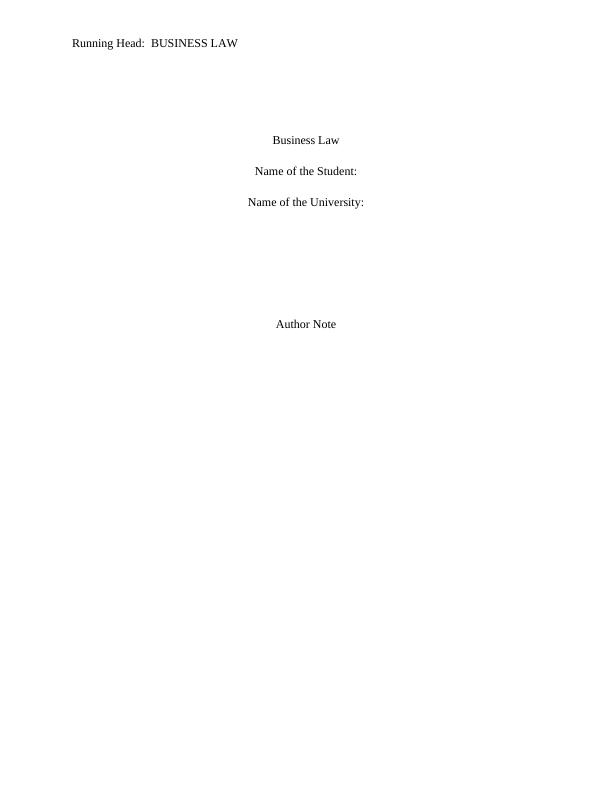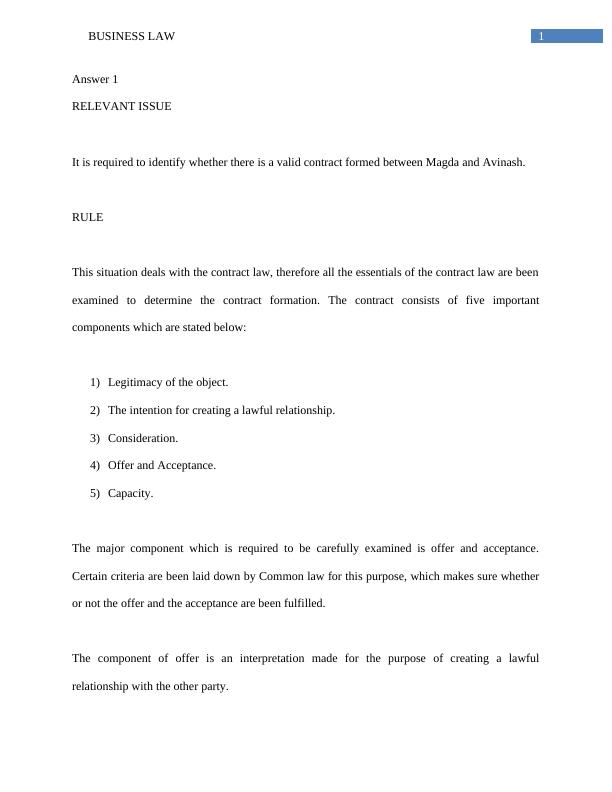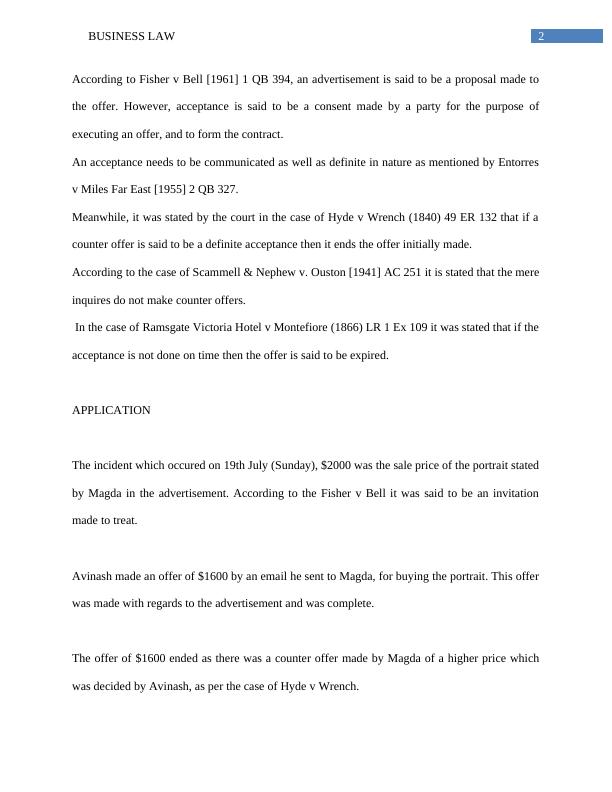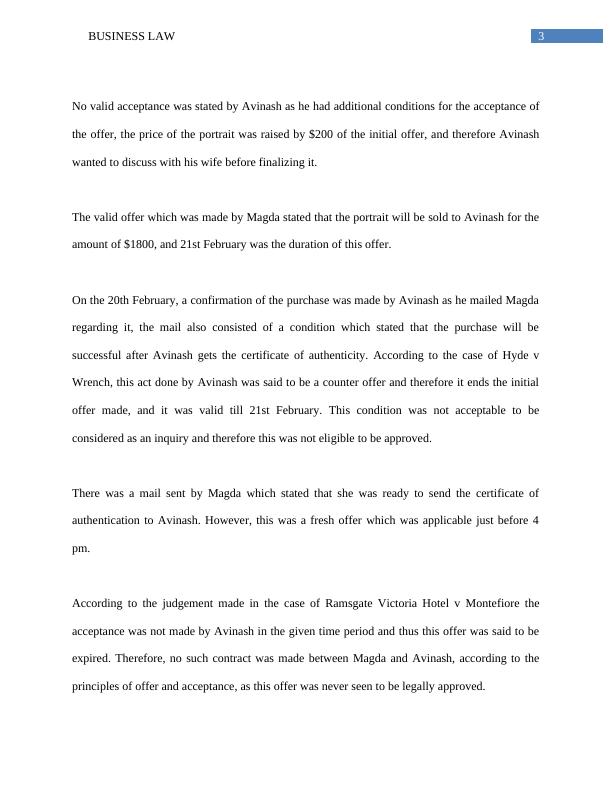Business Law: Contract Formation, Australian Consumer Law, and Rules of Consideration
Answer questions 1 and 2 related to a business law case involving a professional photographer selling prints of her works online and directly from her home studio.
11 Pages2488 Words305 Views
Added on 2023-06-12
About This Document
This article discusses the essentials of contract law, including offer and acceptance, and examines a case study to determine if a valid contract was formed. It also explores the provisions of the Australian Consumer Law and the rights of consumers. Additionally, the article explains the rules of consideration in business law and provides examples of valid and invalid considerations.
Business Law: Contract Formation, Australian Consumer Law, and Rules of Consideration
Answer questions 1 and 2 related to a business law case involving a professional photographer selling prints of her works online and directly from her home studio.
Added on 2023-06-12
ShareRelated Documents
End of preview
Want to access all the pages? Upload your documents or become a member.
Business Law: Contract Formation, ACL Provisions, and Valid Consideration
|11
|2421
|248
Business and Company Law - Assignment
|9
|2500
|76
Business Law Issues : Assignment
|10
|2318
|33
Business Law: Contract Formation and Implied Terms
|11
|2347
|483
Sample Assignment on Bibliography PDF
|4
|995
|145
Contract Law: Essential Elements and Exceptions
|8
|2361
|253




